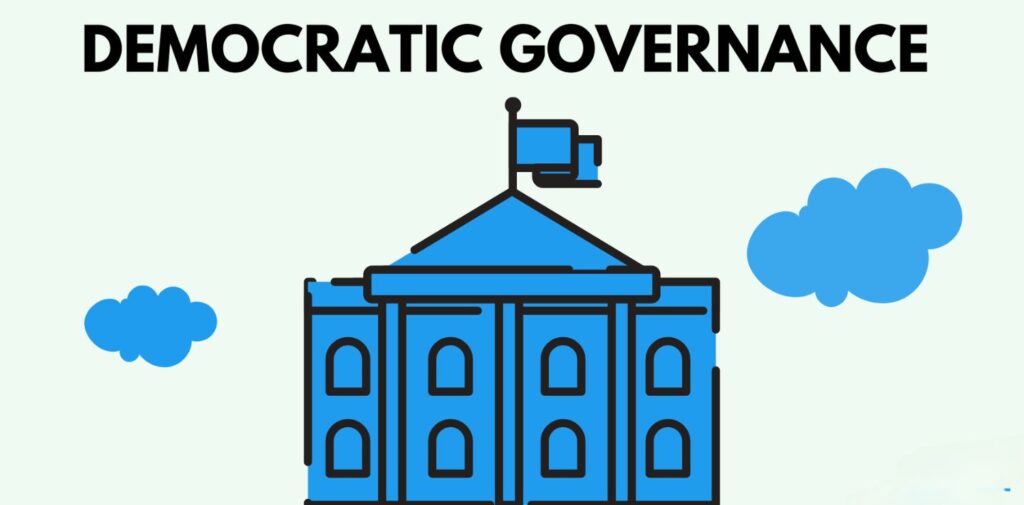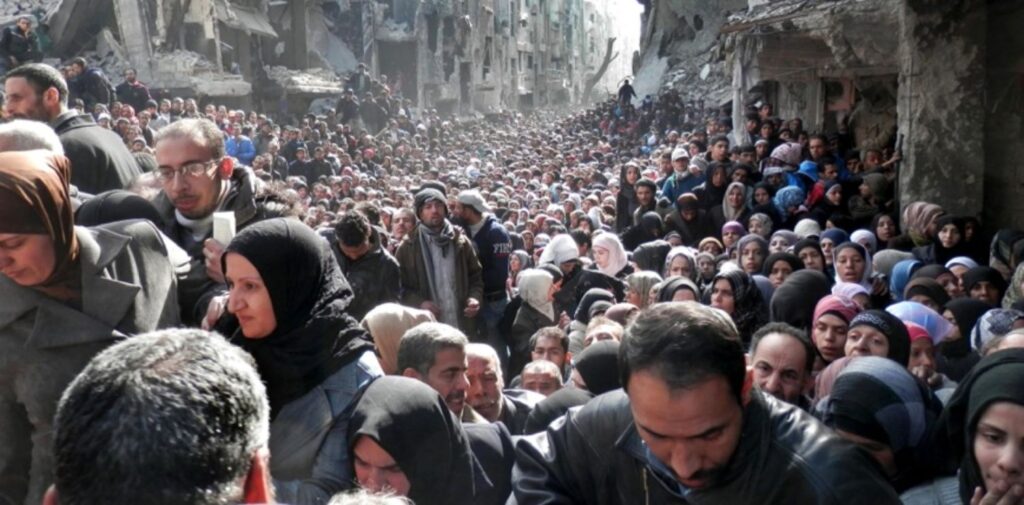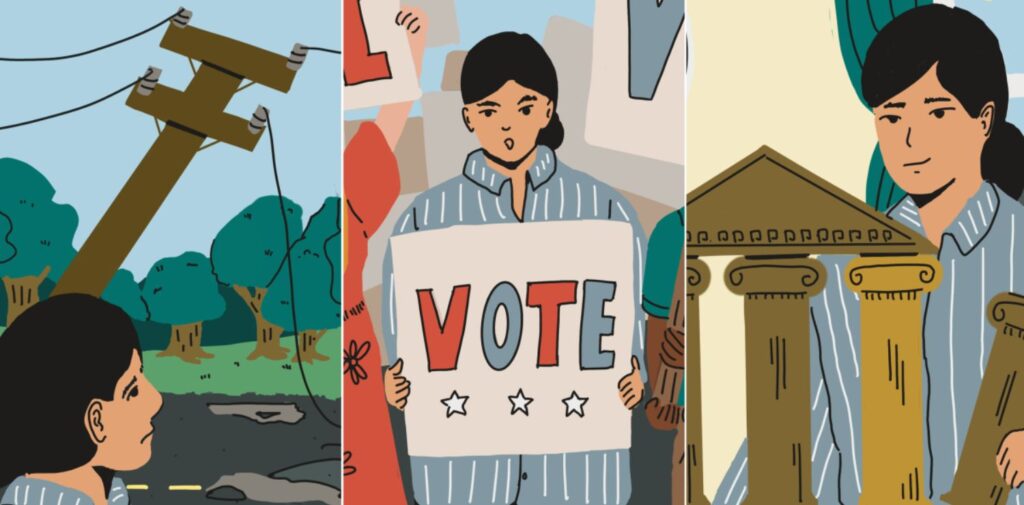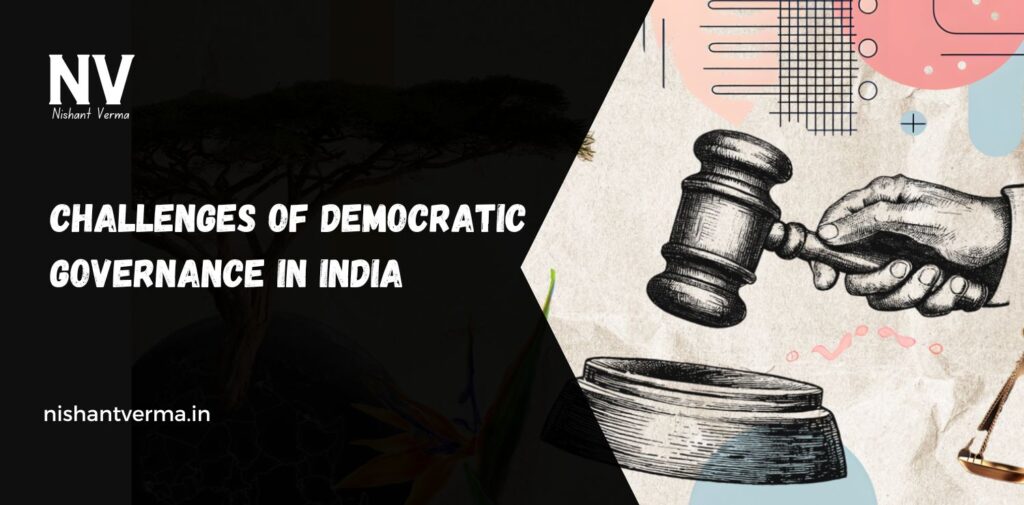India, the world’s largest democracy, is a country where every citizen has the right to choose their leaders and participate in the decision-making process. Since gaining independence in 1947, India has worked hard to establish and maintain a democratic system of governance. However, like any other democracy, India faces several challenges in making democracy work smoothly. These challenges make it difficult to ensure that every citizen’s voice is heard and that the government functions in the best interests of all. This article will explore some of the key challenges of democratic governance in India.
What is Democratic Governance?
Democratic governance means that the government is chosen by the people through free and fair elections. In India, citizens above the age of 18 have the right to vote for their leaders at local, state, and national levels. The elected leaders are responsible for making decisions that affect the entire country.
India’s democratic system is based on the Constitution of India, which guarantees fundamental rights to every citizen and outlines how the government should function. While this system provides many freedoms, it also comes with a few challenges that make governance difficult.

Huge Population and Diversity
India is the second-most populous country in the world, with more than 1.4 billion people. This large population presents a huge challenge for democratic governance. India is also incredibly diverse, with people from many different religions, languages, and cultures living together. These differences are a source of richness, but they also make it hard to make decisions that satisfy everyone.
- Language Differences: India has 22 official languages and over 1,600 languages spoken across the country. This means that when the government makes decisions, it has to ensure that they are understood and accessible to all citizens, regardless of their language.
- Religious and Cultural Diversity: India is home to people of many different religions, including Hinduism, Islam, Christianity, Sikhism, Buddhism, and more. Balancing the needs and rights of these different groups is a challenge for the government to ensure fairness for all.
This diversity sometimes leads to conflicts or tensions between different groups, making it difficult for the government to make decisions that everyone agrees with.
Poverty and Economic Inequality
India has made great progress in the past few decades, but poverty remains a major challenge. A significant portion of the population still lives in poverty, especially in rural areas. The government faces the challenge of addressing the needs of the poor while also promoting economic growth.
- Poverty: Many people in India do not have access to basic necessities like clean water, healthcare, or education. This makes it hard for them to fully participate in democratic processes, as they are often too focused on survival rather than political engagement.
- Economic Inequality: While some parts of India have developed rapidly, there is still a huge gap between the rich and the poor. This inequality means that some people have more power and influence in the democratic process than others. The government needs to work on reducing this inequality to make democracy work for everyone.
Corruption in the Government
Corruption is one of the biggest challenges that Indian democracy faces. Corruption means that some people in power use their positions to take bribes or act in their own personal interest rather than the interest of the people.
- Impact on Governance: Corruption can lead to poor decisions, misuse of government funds, and lack of trust in the political system. If government officials are more focused on personal gain than on serving the people, it becomes difficult to address the needs of the public.
- Efforts to Fight Corruption: The Indian government has taken steps to fight corruption, such as implementing anti-corruption laws and setting up institutions like the Central Vigilance Commission to investigate corruption. However, fighting corruption is a long and difficult process that requires the cooperation of both the people and the government.
Inefficient Bureaucracy
Bureaucracy refers to the system of government officials who are responsible for carrying out the laws and policies made by the government. In India, the bureaucracy is large and complex, which can lead to inefficiency.
- Red Tape: Bureaucracy in India often involves a lot of red tape, meaning there are many steps and paperwork involved in getting things done. This slows down the process and makes it difficult for people to get the services they need.
- Lack of Accountability: Many bureaucrats are not held accountable for their actions, and this can lead to delays in decision-making or even the misuse of power. This lack of accountability creates frustration among citizens who rely on government services.

Political Instability and Regional Disparities
India is a large country with many different states, each having its own government. This can lead to political instability at times, especially when there are disagreements between the state and central governments.
- Regional Tensions: Some states in India feel that they are not getting their fair share of resources or attention from the central government. This can lead to protests, strikes, or even demands for independence. These tensions sometimes weaken the overall governance of the country.
- Coalition Politics: At the national level, political parties often need to form coalitions to form a government. This means that different parties with different ideologies have to work together. Sometimes, these coalitions fall apart, leading to unstable governments and frequent elections.
Voter Awareness and Participation
In a democracy, it is important that citizens are aware of their rights and responsibilities. However, many people in India, especially in rural areas, have limited access to education and information. This makes it harder for them to understand the political process or make informed choices.
- Low Voter Turnout: While India has a high number of eligible voters, not all of them participate in elections. Sometimes, people are not motivated to vote, or they don’t trust the political system. This can undermine the democratic process.
- Voter Manipulation: In some cases, political parties or individuals try to influence or manipulate voters through money, promises, or even threats. This can lead to unfair elections and prevent people from making free choices.
Communalism and Religious Conflicts
India is a country with many religions and communities. However, this diversity sometimes leads to communalism, which means conflicts between different religious groups.
- Religious Riots: In some parts of India, there have been religious riots, where people from different religions fight each other. This creates divisions in society and challenges the idea of unity in democracy.
- Political Exploitation: Some political parties try to use religion as a way to gain votes by appealing to specific religious groups. This can create further divisions in society and damage the spirit of secularism, which is a core principle of India’s democracy.

Solutions to Improve Democratic Governance in India
Although India faces many challenges in its democratic governance, there are several ways in which the country can improve its system:
- Improving Education: Education is key to making sure that people understand their rights and responsibilities in a democracy. Providing better education, especially in rural areas, can help people make informed decisions and participate more actively in the democratic process.
- Fighting Corruption: The government can continue to strengthen anti-corruption laws and ensure that public officials are held accountable for their actions. This will help restore trust in the system.
- Decentralization: Giving more power to local governments can help address regional disparities and ensure that local issues are dealt with more effectively.
- Promoting Secularism: Political leaders need to ensure that religion is not used as a tool to divide the people. Promoting secularism will help create a more unified and peaceful India.
Conclusion: Challenges of Democratic Governance in India
While India has made great strides as the world’s largest democracy, there are still many challenges that need to be addressed. These challenges, including poverty, corruption, regional tensions, and communalism, make democratic governance difficult. However, with the right efforts from both the government and the people, India can overcome these challenges and build a stronger, more inclusive democracy that works for everyone.




